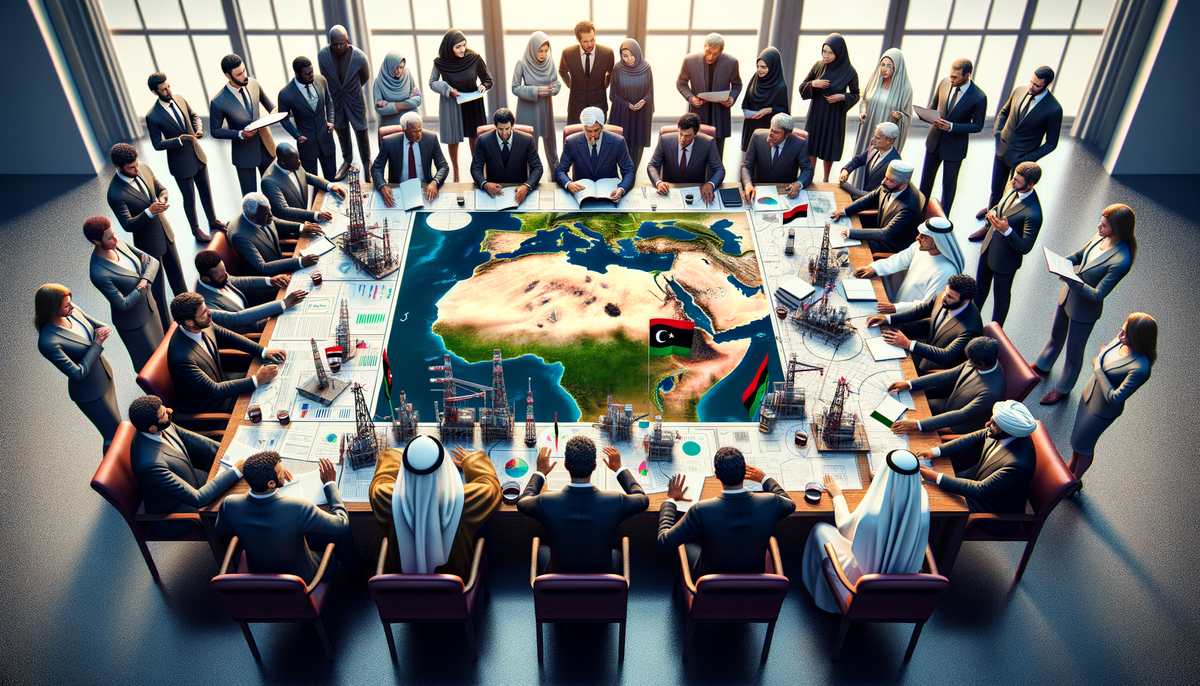Libya's Current Affairs: A Closer Look at the Political and Economic Landscape
Explore the intricate political and economic dynamics of Libya, a nation pivotal to global geopolitics and energy supplies.

Libya's Current Affairs: A Closer Look at the Political and Economic Landscape
Libya, a country positioned strategically in North Africa, has been a focal point for global discussions due to its extended period of political instability and economic potential. The political landscape in Libya has been tumultuous since the fall of Muammar Gaddafi's regime in 2011. This transition period has seen conflicting claims to power and a prolonged political stalemate affecting economic development and public sector capacity.
The Present Political Situation in Libya
The political environment in Libya remains highly fragmented as of 2025, with power struggles and institutional disarray continuing to impact the country's development. Efforts to stabilize the government are ongoing, yet tangible progress remains elusive. These political divides have perpetuated a crisis of governance, obstructing effective policy implementation and fostering an environment marked by uncertainty and volatility (source).
Economic Overview and Challenges
Libya's economy is heavily reliant on its abundant oil resources, which account for a significant portion of its GDP, export, and government revenues. Despite Libya having the tenth-largest proven oil reserves globally, the country's economic growth is hindered by its overdependence on this sector. The persistent political instabilities have additionally deterred substantial foreign investments and exacerbated issues such as underdeveloped infrastructure and services (source).
Geopolitical Importance
Libya's location at the intersection of Africa, the Middle East, and Europe bestows upon it a unique geopolitical significance. This is particularly pertinent in energy supplies, migration flows, and regional security dynamics. The country plays a crucial role in these spheres, impacting regulatory approaches in neighboring regions and European responses to migration and energy security issues.
Libya's Migration Challenges
Given its position, Libya is a key transit point for migrants attempting to reach Europe, often leading to international tensions and negotiations. Recent reports suggest that the United States might soon undertake deportation operations involving migrants in Libya, facilitated through military flights, drawing attention to the ongoing humanitarian and political pressures in the region (source).
Practical Takeaways for Libya Professionals
Professionals and stakeholders in Libya must recognize the potential within the private sector, which, despite its current modest size, offers significant growth opportunities. Diversifying the economy beyond oil and investing in infrastructure and education could drive sustainable development. Engagements with international bodies to facilitate aid and partnerships may further enhance Libya's capacity to address its pressing social challenges.
Conclusion and Call to Action
Libya's journey through political and economic transitions presents both incredible challenges and opportunities. The pressing need is for frameworks that promote stability, enhance economic diversification, and strengthen social infrastructure. We invite professionals and business leaders to explore opportunities in Libya's developing sectors and participate in its path toward stability and prosperity. For more insights into Libya's changing landscape and to engage with cutting-edge analysis, visit our expert consulting services.
Explore more about our services and how we can assist your business in navigating Libya's complex environment.




